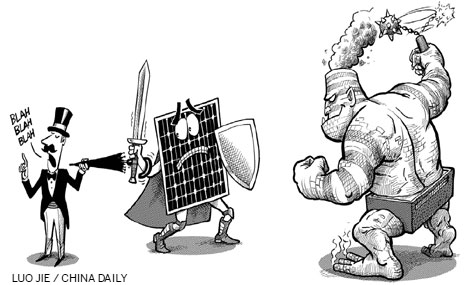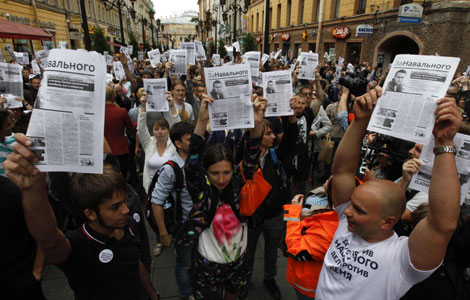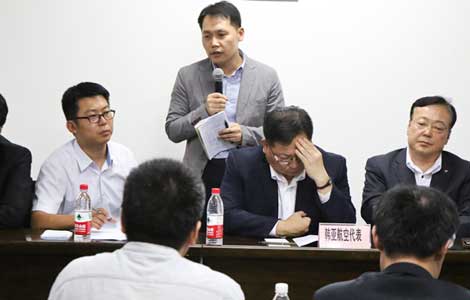Taking the heat off the solar dispute
Updated: 2013-07-19 07:08
By Patrick Schroeder (China Daily)
|
||||||||

The global solar photovoltaic (PV) products' sector faces a new challenge in the form of trade disputes between major producers and consumers. These disputes are quite testing, because there is a fine balance between creating a level playing field in the market and the need to make solar technology more affordable for the majority of the global population.
Following the recent imposition of 11.8 percent interim anti-dumping duty by the European Union on solar PV products imported from China, including panels, cells and wafers, the issue has become highly politicized between the two sides, among the EU member states and the key players of the solar PV industry.
Subsequently, the EU and China have held negotiations on "price undertakings", with the EU saying Chinese solar panels would be sold at a certain minimum price in the European market. These trade talks were initiated at the annual EU-China ministerial-level meeting of the joint economic and trade commission in Beijing on June 21. China's Minister of Commerce Gao Hucheng and EU Trade Commissioner Karel De Gucht co-chaired the talks, where trade issues, including the solar panel dispute, were discussed.
The negotiations are continuing and, under the current proposal, the total power-generating capacity of Chinese PV modules imported by EU should be below 10 gigawatt a year, with a minimum price of 0.5 euro per watt. This will make the prices of Chinese solar products sold in the EU more comparable to those of European panels.
Both sides, however, are under pressure to reach an agreement before Aug 6, failing which the EU will raise the anti-dumping duty to 47.6 percent, which could be followed by an EU decision in December to continue with the anti-dumping duty for the next five years.
There are several reasons why the EU and China should reach an agreement on the issue which allows both sides to save face and will facilitate the healthy development of the global solar products' industry.
First, such an agreement is necessary to prevent the EU-China trade conflict from spilling beyond the solar PV panel sector. Beijing has already initiated an investigation into EU wine exports to China. To prevent the row from escalating into a full-scale trade war and harming long-term EU-China cooperation in fields such as clean energy and climate change, the two sides have no option but to find a workable solution.

 Firefighters hold line against California wildfire
Firefighters hold line against California wildfire
 Rat, rabbit head sculptures on display
Rat, rabbit head sculptures on display
 Detroit files biggest ever US municipal bankruptcy
Detroit files biggest ever US municipal bankruptcy
 Russia jails opposition leader
Russia jails opposition leader
 Plane crash victims' parents seek answers
Plane crash victims' parents seek answers
 'Improving' Mandela marks 95th birthday
'Improving' Mandela marks 95th birthday
 Qingdao eatery finds use for pesky seaweed
Qingdao eatery finds use for pesky seaweed
 From university campus to boot camp
From university campus to boot camp
Most Viewed
Editor's Picks

|

|

|

|

|

|
Today's Top News
Detroit faces uncertain future in bankruptcy
Apple, Google urge surveillance disclosure
Monetary system needs overhaul, says report
US companies seek tougher enforcement of IP laws
Syrian refugees demand help from Kerry at camp
Second iPhone shock leaves man in coma
China's government spends less in 2012
Pregnant Olympic runner dies, baby saved
US Weekly

|

|






